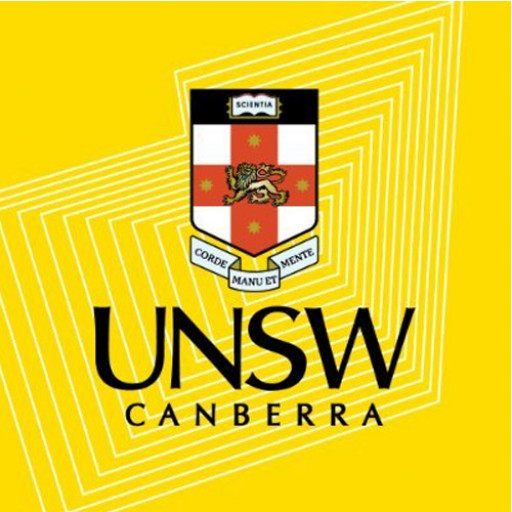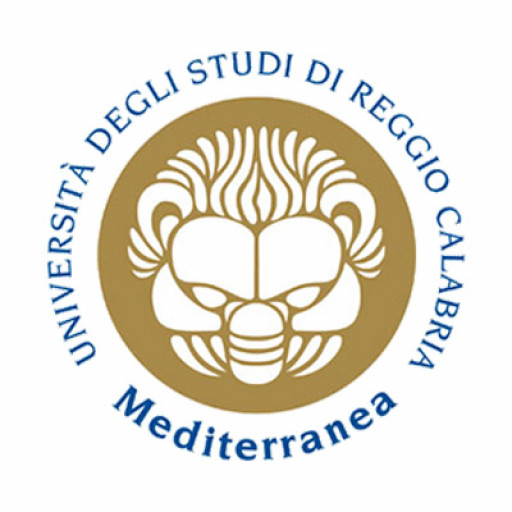Photos of university / #cranfielduni
The MSc in Advanced Mechanical Engineering at Cranfield University is a highly specialised postgraduate programme designed to equip students with cutting-edge knowledge and skills in mechanical engineering principles, modern design techniques, and advanced manufacturing processes. This programme is tailored for individuals seeking to enhance their technical competence and leadership capabilities in the rapidly evolving field of mechanical engineering. Over the duration of one year (full-time) or two years (part-time), students will engage in a comprehensive curriculum that combines core modules, optional electives, and practical projects, all delivered by experienced faculty members and industry partners.
The programme covers a broad spectrum of topics including advanced dynamics, fluid mechanics, thermodynamics, materials engineering, and control systems. Emphasis is placed on the application of theoretical concepts to real-world engineering problems, fostering innovation and problem-solving skills. Students will gain hands-on experience through laboratory work, simulation exercises, and research projects, preparing them to tackle complex engineering challenges across various sectors such as aerospace, automotive, energy, and manufacturing.
Cranfield University’s strong links with industry ensure that students have opportunities for internships, collaborative projects, and networking with leading engineers and companies. This connection to industry not only enhances learning but also facilitates employability upon graduation. The programme also emphasizes the development of professional competencies, including project management, technical communication, and ethics in engineering.
Graduates of this MSc programme will be well-positioned for careers in research and development, technical consultancy, design engineering, and managerial roles within engineering firms, government agencies, and industrial organisations. Whether you are an early-career engineer looking to specialise or an experienced professional seeking to update your expertise, the Advanced Mechanical Engineering MSc at Cranfield provides a rigorous, industry-relevant education that prepares students to thrive in dynamic engineering environments.
The taught programme for the Advanced Mechanical Engineering masters is generally delivered from October until February and is comprised of eight compulsory taught modules. Students on the part-time programme will complete all of the compulsory modules based on a flexible schedule that will be agreed with the Course Director.
This course is also available on a part-time basis for individuals who wish to study whilst remaining in full-time employment. This enables students from all over the world to complete this qualification whilst balancing work/life commitments. We are very well located for visiting part-time students from all over the world, and offer a range of library and support facilities to support your studies. This MSc programme benefits from a wide range of cultural backgrounds which significantly enhances the learning experience for both staff and students.
Group project
The group project, undertaken between February and April, enables you to put the skills and knowledge developed during the taught modules into practice in an applied context using practice analytical and numerical skills. You will also gain transferable skills in project management, teamwork and independent research.
The aim of the group project is to provide you with direct experience of applying knowledge to an industrially relevant problem that requires a team-based multidisciplinary solution. You will develop a fundamental range of skills required to work in a team including team member roles and responsibilities, project management, delivering technical presentations and exploiting the variety of expertise of each individual member. Industry involvement is an integral component for the group project, to give you first-hand experience at working within real life challenging situations.
It is clear that the modern design engineer cannot be divorced from the commercial world. In order to provide practice in this matter, a presentation and poster will be required from all students. This provides the opportunity to develop presentation skills and effectively handle questions about complex issues in a professional manner. All groups submit a written report and deliver a presentation to the industry partner.
Part-time students are encouraged to participate in a group project as it provides a wealth of learning opportunities. However, an option of an individual dissertation is available if agreed with the Course Director.
Recent group projects include:
- Preliminary design of an offshore floating wind turbine
- Multi-disciplinary design of an high speed marine vehicle with aerodynamic surfaces
- Design optimisation of the drive train for a vertical axis wind turbine.
- Conversion of consumer waste plastic into new plastics
- Design specification of pilot scale 142 kWth air/rock
- Thermodynamic modelling of using Ca-based sorbents for heavy metal emission control during contaminated biomass combustion
- Conceptual and preliminary design of a SPAR for a 5 MW VAWT
- OpenO&M: Optimising availability of floating wind turbines for increased safety
- Investigation of severe slugging in pipelines
Individual project
The aim of the individual research project is to provide you with direct experience in undertaking a research/development project in a relevant industrial or research area. You will make a formal presentation of your findings to a panel of academics and industry experts and submit a research thesis.
The individual research project component takes place from May to August.
For part-time students it is common that their research thesis is undertaken in collaboration with their place of work and supported by academic supervision.
Recent individual research projects include:
- Comparison of a panel method and Reynolds averaged Navier-Stokes (RANS) method to estimate the aerodynamic coefficients of a profile flying in ground effect
- The stress shielding effect of cracks in loaded components
- Review and modelling of heave and roll motion passive damping systems for offshore floating support structures for wind turbines.
Assessment
Taught modules 40%; Group Project 20%; Individual Research Project 40%
University Disclaimer
Keeping our courses up-to-date and current requires constant innovation and change. The modules we offer reflect the needs of business and industry and the research interests of our staff and, as a result, may change or be withdrawn due to research developments, legislation changes or for a variety of other reasons. Changes may also be designed to improve the student learning experience or to respond to feedback from students, external examiners, accreditation bodies and industrial advisory panels.
To give you a taster, we have listed the compulsory modules and (where applicable) some elective modules affiliated with this programme which ran in the academic year 2018–2019. There is no guarantee that these modules will run for 2019 entry. All modules are subject to change depending on your year of entry.
Compulsory modules
- Fluid Mechanics and Loading
- Advanced Control Systems
- Risk and Reliability Engineering
- Engineering Stress Analysis: Theory and Simulations
- Computational Fluid Dynamics for Renewable Energy
- Heat and Power Generation Systems
- Structural Integrity
- Management for Technology
A first or second class UK Honours degree (or equivalent) in mathematics, physics or an engineering discipline. Other recognised professional qualifications or several years relevant industrial experience may be accepted as equivalent; subject to approval by the Course Director.
Applicants who do not fulfill the standard entry requirements can apply for the Pre-Masters programme, successful completion of which will qualify them for entry to this course for a second year of study.
English Language
If you are an international student you will need to provide evidence that you have achieved a satisfactory test result in an English qualification. Our minimum requirements are as follows:
- IELTS Academic - 6.5 overall
- TOEFL - 92
- Pearson PTE Academic - 65
- Cambridge English Scale - 180
- Cambridge English: Advanced - C
- Cambridge English: Proficiency - C
- Trinity College London Integrated Skills in English III - minimum overall score of pass
In addition to these minimum scores you are also expected to achieve a balanced score across all elements of the test. We reserve the right to reject any test score if any one element of the test score is too low.
We can only accept tests taken within two years of your registration date (with the exception of Cambridge English tests which have no expiry date).
Students requiring a Tier 4 (General) visa must ensure they can meet the English language requirements set out by UK Visas and Immigration (UKVI) and we recommend booking a IELTS for UKVI test.
Applicants who do not already meet the English language entry requirement for their chosen Cranfield course can apply to attend one of our Presessional English for Academic Purposes (EAP) courses. We offer Winter/Spring and Summer programmes each year to offer holders.
The financing options for the Advanced Mechanical Engineering MSc program at Cranfield University are designed to support students through various funding routes. Many students choose to finance their studies through a combination of personal savings, employer sponsorship, student loans, and scholarships. Cranfield University offers a range of scholarships specifically for postgraduate students, which can significantly reduce the financial burden. These scholarships are competitive and awarded based on academic merit, professional experience, or financial need. Additionally, students from certain countries may be eligible for government-sponsored loans or financial aid packages.
For UK and EU students, there are options to access government Loans such as the Postgraduate Master's Loan, which can cover up to a specified amount towards tuition fees and living costs. International students are often encouraged to seek advice on external funding possibilities, including scholarships offered by their home governments or private organizations. Cranfield University also provides flexibility in payment plans, allowing students to spread the cost of tuition over several installments, making studies more manageable financially.
Working part-time during the program may be possible, depending on visa restrictions for international students, providing an additional source of income. Furthermore, some students secure funding from their current employers as part of professional development initiatives, especially if the course aligns with their career progression. Prospective students are advised to consult the Cranfield Financial Support Team and the university’s official website for the most current information on available funding options, application deadlines, and eligibility criteria. Careful planning and early application are recommended to maximize funding opportunities and ensure a smooth financial journey through their Advanced Mechanical Engineering MSc studies.
The Advanced Mechanical Engineering MSc at Cranfield University is designed to provide students with a comprehensive understanding of the core principles and innovative practices in mechanical engineering. The programme combines theoretical knowledge with practical skills, preparing graduates to meet the challenges faced by the engineering industry today. Students will explore advanced concepts in thermodynamics, fluid mechanics, materials science, and structural analysis, gaining insights into the design, development, and optimization of mechanical systems. The curriculum emphasizes hands-on learning through laboratory work, design projects, and industry-led case studies, enabling students to apply their knowledge to real-world problems. Cranfield’s strong links with industry ensure that the programme remains relevant and up-to-date, offering students networking opportunities and access to industry experts. The course also covers emerging fields such as renewable energy, sustainable manufacturing, and robotics, reflecting current technological advancements and future trends. The duration of the MSc is typically one year full-time, with options for part-time study. Graduates of this programme are well-equipped to work in various sectors including aerospace, automotive, energy, and manufacturing industries, or to undertake further research and doctoral studies. The faculty comprises experienced academics and industry specialists who provide mentorship and support throughout the course. State-of-the-art laboratories and research facilities at Cranfield enhance the learning experience, allowing students to engage in high-level research and innovation. Overall, the Advanced Mechanical Engineering MSc aims to develop highly skilled engineers capable of leading technical projects, improving engineering processes, and contributing to technological advancements in their respective fields.










